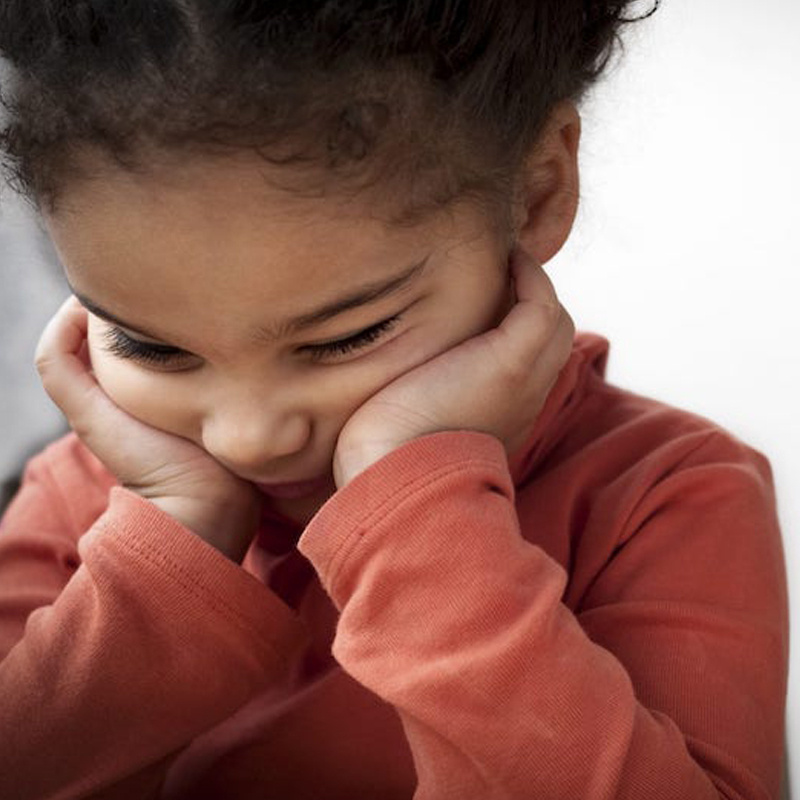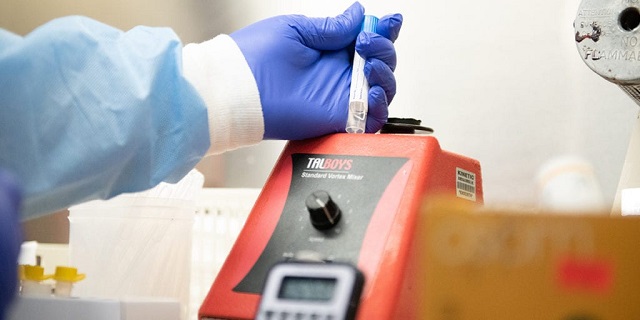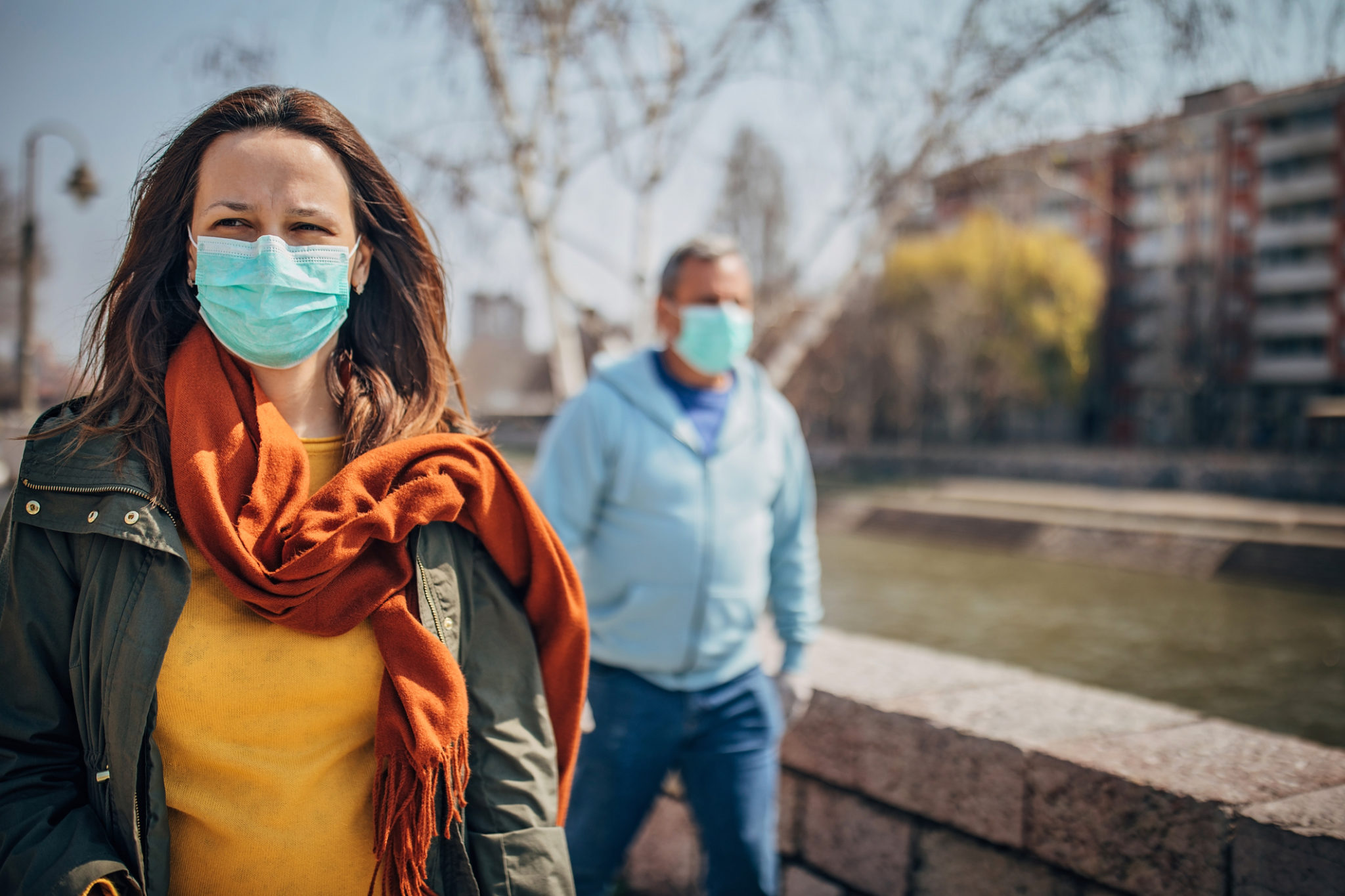Should You Wear a Mask Outside?

April 20, 2020
Updated: 7/9/2020
The Centers for Disease Control and Prevention (CDC) and World Health Organization (WHO) have both updated guidelines around wearing masks. The health agencies are now urging people to wear masks, in the form of cloth face coverings, in public settings where social distancing measures are difficult to maintain to help slow the spread of coronavirus (COVID-19).
Many states, including New Jersey, have issued orders that require people to wear masks outdoors in places where social distancing can’t be observed. Face coverings have already been required at indoor public spaces since early April.
These new orders have people asking, do I have to wear a mask/cloth covering every time I leave the house? Even when I go outside? Here’s the scoop: It depends.
You should be wearing a mask outside if:
- It is difficult to maintain the recommended 6-foot social distancing from others (such as going to the grocery store or pharmacy or walking on a busy street or in a crowded neighborhood).
- If required to by law. Many areas now have mandatory masking regulations when in public.
The CDC stresses that we must maintain 6-feet of social distancing from others to continue slowing the spread of coronavirus. So, if there is even a slight chance that you might violate the 6-foot rule, wear a mask/cloth covering just in case. If you are exercising and it’s difficult to breathe while wearing a face covering, keep one in your pocket that you can easily grab if needed.
You do not need to wear a mask outside if:
- You’re in your backyard or on personal property and it is very unlikely that you’ll end up within 6 feet of someone else.
- You are in any other secluded location where the likelihood of running into someone else is very low.
- You are in either of the previously mentioned environments with someone you’ve been quarantined with.
- You are under two years old or have a condition where wearing a mask would inhibit your health.
- You are engaging in “high intensity aerobic or anaerobic activities” or when in the water.
- You are eating or drinking outdoors.
The CDC recommendation to wear cloth face coverings comes from new data that shows a significant portion of people with coronavirus have mild or no symptoms, and even if someone does develop more severe symptoms, they can transmit the virus before those symptoms appear. This means that people can spread the virus to others without even knowing they have it.
While wearing a cloth face covering isn’t primarily intended to help protect the wearer, it can help prevent the wearer from spreading the virus through viral droplets (such as saliva or mucus) even if they are not aware they are infected.
The CDC continues to recommend that medical grade masks, such as surgical masks and N95 respirators be reserved for health care workers and other medical first responders since we are in short supply.
Next Steps & Resources:
- Meet our clinical contributor: Elliot Frank, M.D.
- To make an appointment with Dr. Frank or a doctor near you, call 800-822-8905 or visit our website.
The material provided through HealthU is intended to be used as general information only and should not replace the advice of your physician. Always consult your physician for individual care.
Reduce Your Fear of Needles

A fear of needles can seem debilitating. Here are some tips to help overcome the phobia.
What Makes a Child Tic?

Frequent eye blinking, facial grimacing, shoulder shrugging, sniffling, repetitive throat clearing or uncontrolled vocalization; these are all symptoms of a tic. Our pediatric neurologist shares the most common questions parents ask surrounding their child’s tic.

How to Take Your Temperature to Check for a Fever
You’ve probably checked your temperature before and using a thermometer is a simple process, but do you know how to do it effectively?

What Can You Do After You’re Fully Vaccinated Against COVID?
There are advantages to getting fully vaccinated against COVID-19.

Everything You Should Know About New Mask Guidelines
Wearing a mask, along with other practices like social distancing, helps to slow the spread of COVID-19. Just as important as remembering your mask, though, is wearing and choosing an appropriate one.

How to Keep Coronavirus Off Your Phone & Devices
The Centers for Disease Control and Prevention says that phones and personal electronic devices are considered “high-touch” surfaces which make it a carrier for coronavirus.
